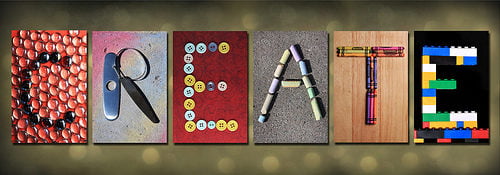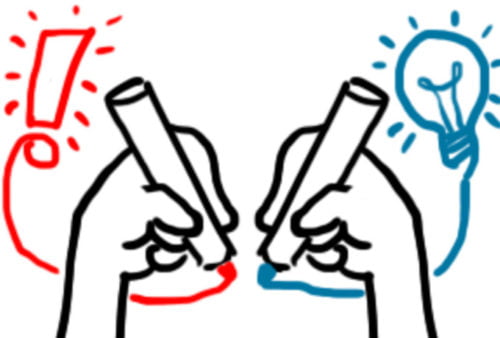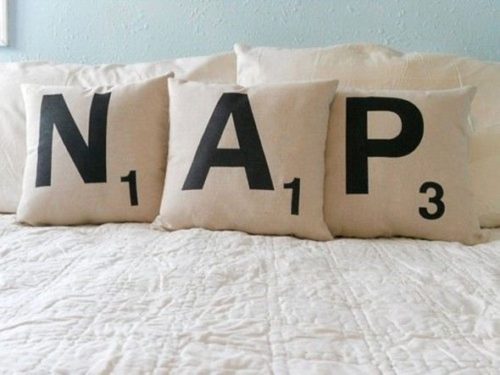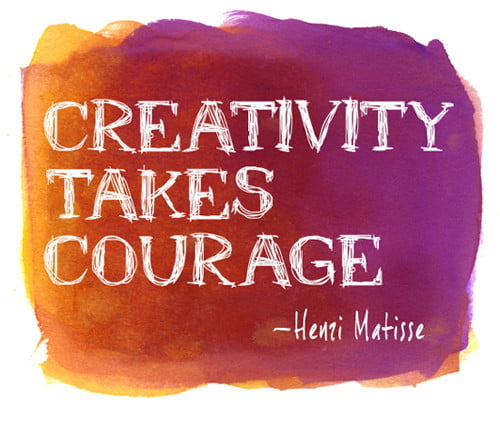 I never like telling someone no.
I never like telling someone no.
I never like hearing no.
I don't like that I just picked out a "no" clip art for this blog post. It's feels so harsh to me. And I don't like to be harsh.
Because isn't it true?
Telling someone no brings on disappointment. It ruffles up community life. It creates disconnection. It's stop word after all.
Hearing no messes with a sense of value. It can rob a person of their worthiness (if we let it). It usually feels like a door slam shut even if it's messenger approaches with respect and kindness. It's not a word radiating welcome.
And we love connection and welcome. So there's no wonder we feel that no is such a bad word. Or is it?
Let's start with this: time and time again I've learn that "No" is one of the most spiritual words I can hear. No is one of the most spiritual words I can offer someone else.
Here are two gifts of hearing the word no and saying it to others.
I was listening to a podcast recently by one of my favorite authors, Elizabeth Gilbert.
When asked the question about what she gave up to serve her creative process, she talked about the hardship of the word "no."
She bemoaned all the people who felt hurt by her "no's" and how it cost her friends, both personal and professional that she thought she'd have in her life forever. And visa versa.
Elizabeth reminded listeners that: "You have to sit with the discomfort that comes from the sacred no."
And here was the zinger question (paraphrasing here) she offered: what do you need to say no to so that you can fulfill why you are here on this planet?
This question is one that has stuck with me ever since I heard it.
Both to toughen me up when rejections come (believing that even the most devastating missed opportunities remind me that God is God and I am not) AND to have the courage to reject anything out of line with WHO I am made to be and HOW God wants me to use my time on earth.
There are a thousand amazing things to be and do, of course. Yet not all of these things were meant for me (or you either)!
So I'm wondering to WHO do YOU need to say "no" today?
How do you need to lick your wounds and move on from a "no" that has long kept you paralyzed?
What do the "no's" in your life have to teach you?
Let's keep learning and listening together. And saying no. It's good soul work.
 In my childhood church in Chattanooga, TN, I was raised by many teachers. One of them was a woman who ran the children's choir program. Though she was active in the church in almost every way, never did you hear her sing in church. One day I asked why.
In my childhood church in Chattanooga, TN, I was raised by many teachers. One of them was a woman who ran the children's choir program. Though she was active in the church in almost every way, never did you hear her sing in church. One day I asked why.
“I used to sing a lot in public,” she offered my questioning.
“You did?” I was shocked.
“What happened?”
“Well, it was about 10 years ago. I sang my heart out one Sunday night. I really felt good about what I sang and the way I sang it. But then somebody in the congregation came up to me afterwards and told me all the ways I could have improved my song closing with ‘You should really leave the singing up to others.’”
My jaw dropped as she went on, “So I decided then and there at that moment that I would never sing again in church. I’d teach kids to sing. I’d sing in a group. But, never would I sing alone.”
I still remember this conversation because of how sad I felt afterwards. Here, this friend and mentor of mine was so swayed by one person’s criticism of her musical gifts that she vowed NEVER to sing again in public. What a tragedy that her gifts could not be shared with the larger community.
Though this might seem like somebody else’s tale, we know it’s not. So many of us share this same story!
Though as children we showed an inclination toward singing or drawing or gardening or cooking or building or countless other creative tasks, so many of us find ourselves in adulthood saying, “I’m not a creative person.”
And we look to other people to be that. Somebody else can write the stories. Somebody else can paint the paintings. Somebody can cook at the dinner parties. We’ve long given up the work of the right side of our brains in exchange for spreadsheets, structured schedules and paint-by-number lives without room for creativity to take us where it may.
In fact, in Big Magic: Creative Living Beyond Fear author Elizabeth Gilbert offers some of the best excuses we give for our lack of creativity.
We’re afraid we don’t have talent.
We’re afraid somebody else did it better.
We’re afraid we don’t have the right type of discipline.
We’re afraid we don’t have the right type of training or degree.
We’re afraid we’re too fat. (Gilbert goes on to add… I don’t know what this has to do with creativity, exactly but experience has taught me that most of us are afraid we’re too fat, so let’s just put that on the anxiety list, for good measure.)
We’re afraid our best work is behind us.
We’re afraid we’re too old to start, too young to start . . .
You get the picture, don’t you? When it comes to calling ourselves creative… it’s so easy to say that we’re not.
But then, what do we do when we arrive at texts of scripture like Genesis chapter one that say:
“In the beginning God created the heavens and the earth. . . “
What do we do when we realized that the very first verb used to describe God in all of scripture is this one—God created . . .
This past Sunday I was preaching at St. Matthew's Presbyterian Church in Silver Spring, MD and I posed to them this question:
What then, does the creation story say about us?
As we keep reading the rest of Genesis 1, what we read is a full-on, detailed description of all of the creative activities of our God. The world, we are told, comes to be through God’s creative self: weaving together light and dark, sound and quiet, gathering and scattering, planting and harvesting as well as multiplying and ceasing. We read about how our God created something that was never imagined, conceived or seen before “In the beginning.”
There’s no way we can get around understand who God is without talking about God’s creativity!
And then God takes the creative process one step further saying in verse 26: “Let us make humankind in our image . . . And God created humankind in his image, in the image of God he created he created [us] male and female.”
Human beings come to form, creations specifically made in the image of the Creator.
And what’s the expectation, then of us who are born of this creative God?
Creativity, of course. We are welcomed as active participants into the ongoing creation as God continues to bring forth beauty, love and connection between all the creators of this world. Simply put: we aren’t off the hook when it comes to creativity.
Just as God is creative, we who are created as the image bearers of our Creator are to create.
No exceptions. No “someone told me I’m not good enough.” “No “I don’t have time.” No “I’m too young to be taken seriously.” No, “I’m too old to start.”
No.
The God we meet in Genesis chapter 1 is the God who moves in creative steps and asks us to do the same.
But this seems like a daunting task doesn’t? How is this even possible?
If you’ve ever poured yourself into a long endeavor of writing a story, or spend a long afternoon re-planting flowers in the yard, or tried something new like a cooking or computer class at a local community center—you know how you feel afterwards--- pooped. Brain fried. Ready for a nap. A break. A time out among something or someone who restores your soul.
Rest, you see, is a natural rhythm of true creativity.
We are not made to produce all the time. We not made to listen to all the voices surrounding us all the time. We are not made for the busyness of what it means to be a citizen on this earth all the time.
We are made to rest too.
Maybe this is why scripture tells us that after God created humankind, God “rested from all the work that he had done in creation.”
Even Almighty, all-powerful, all-knowing God took a nap.
So why do we think our lives would be any different?
You see, I’m thinking today that all our resistance to our Creator’s invitation to create alongside, is not just about comparison of talents or that time that so and so told us that we were no good, but it’s about our inability to embrace a life of Sabbath: time set-apart in our weeks for listening, not doing, sitting still, not rushing on, and reflecting on what’ve we done, calling it “good” too.
Without a practice of Sabbath, our inclination to creativity, as our God has gifted us, simply doesn’t happen.
Many of you know that a large part of my ministry is writing. I’ve written a book. I write op-eds for Christian publications. I write sermons. I spend a lot of time during the week in front of my computer. A question I’m often asked is:
How do I not run out of things to say?
Well, there’s one thing I’ve learned as I’ve leaned into my creativity and said yes to God’s calling on my life to write it is that my best ideas and strongest motivations to follow through come when I’ve rested. Both literally in the night but also rested by taking time off from work.
I have to tell you that sometimes it’s annoying! Laying on my pillow at night with ideas flowing on something at 11 pm when I wish I could just sleep. Or getting a great idea for a sermon when I’m in a week when I’m not preaching the following Sunday.
Rest and Sabbath keeping is what gives me the courage to be creative. Without Sabbath keeping, the creative life dies. At least it's what I know for sure.
So when are you going to stop and rest? It might just lead you to do something creative. . . . something beautiful.
 I'm a fan of courageous people who are also writers. And I'd say that Elizabeth Gilbert is one of them.
I'm a fan of courageous people who are also writers. And I'd say that Elizabeth Gilbert is one of them.
Many of you know her from her 2006 bestseller, Eat Pray Love which chronicled her healing journey from divorce while visiting Italy, India and Bali.
(I also loved Gilbert's not as widely read follow-up memoir, Committed: A Love Story. I've even used this collection of essays on marriage in my pre-marital counseling sessions!)
And this is what I want to tell you today . . .
As I continue to navigate the ups and downs of my relationship to the creative, I feel I couldn't have discovered this book at a better time.
For from the first couple of chapters, it's clear that Gilbert is serious.
You’re afraid you have no talent. You’re afraid you’ll be rejected or criticized or ridiculed or misunderstood or—worst of all—ignored. You’re afraid there’s no market for your creativity, and therefore no point in pursuing it. You’re afraid somebody else already did it better. You’re afraid everybody else already did it better. You’re afraid somebody will steal your ideas, so it’s safer to keep them hidden forever in the dark. You’re afraid that someday you’ll look back on your creative endeavors as having been a giant waste of time, effort, and money. You’re afraid you don’t have the right kind of discipline.
The bottom line is all of these excuses are fear-based.
So not giving into fear, we do something about that essay, that book project, that painting, that garden, that wood carving, or that song that is in us and longing to get out and bless the world!
On page 89 she writes, "Are you considering becoming a creative person? Too late, you already are one. To even call someone 'a creative person' is almost laughably redundant; creativity is the hallmark of our species. . . . If you are alive, you're a creative person."
So this is the word:
Write: even if your book never gets published.
Cook fancy dinners: even if your family is the only ones to taste it.
Plant flowers: even if no one else appreciates it.
Do the creative work for the love of the work itself, Gilbert says.
Throw out the idea that you don't have time.
Drawing upon the metaphor of being in love for the first time-- remembering how two lovers steal away any moment they can get to be together-- Gilbert says honor your creative soul in the same way. We all have little pockets in our day. Indulge ourselves. Create!
The real answer is simple. I just do it.
I can't not write. I can't not blog. I can't not share what I experience with you, my beloved audience. So because it's this important to me, then I always have time to write.
I hoard moments on airplanes. I hoard moments right before I go to bed. I hoard moments when I'm in between appointments. Sometimes Kevin looks over at me on the computer with that focused stare and asks, "Are you blogging again?" Of course, I am!
Even if I wasn't the best writer in a line-up. Even if I hit publish on a post full of typos sometimes (or maybe a lot). Even if nobody ever read what I offered. When inspiration came, I would do something about it.
It was a scary decision, yes. It has changed my daily patterns, yes. But it's a choice I've never regretted. Because I am a creative person. And I must create. And my SOUL THANKS ME every day.
So what are you working on? I'd love to hear. Post a comment or send me an email. We've got to encourage each other.